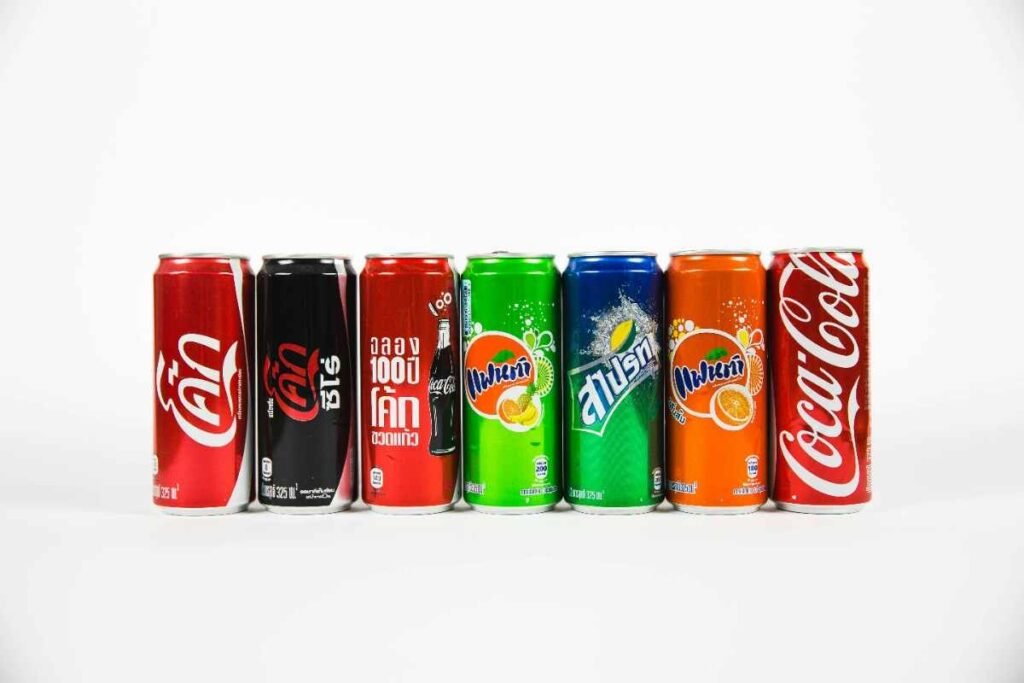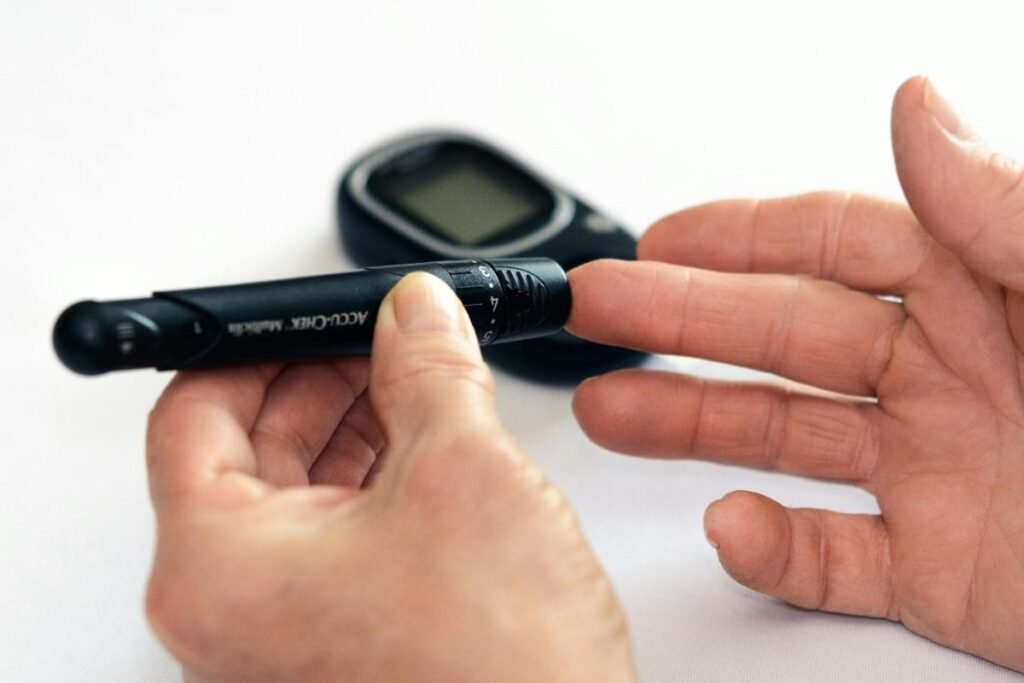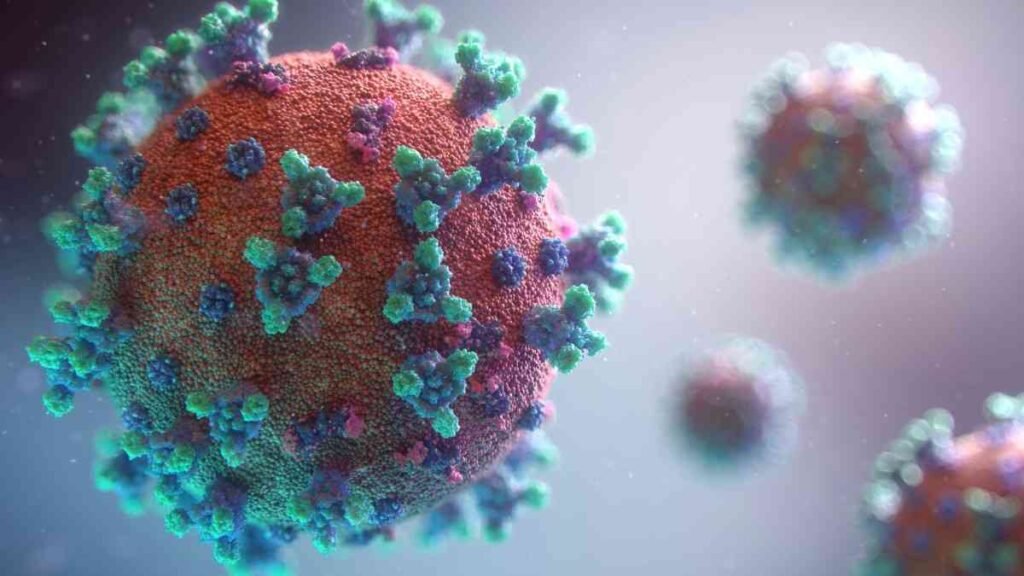Is soda really bad for our health?
In today’s fast-paced society, soda has become a popular choice due to its quick sweetness and refreshment. However, beyond its appealing taste, soda is associated with various negative effects on our health.
It can lead to weight gain, dental problems, and an increased risk of chronic conditions such as diabetes and heart disease.

This conversation will explore in detail how soda can affect our health and why it’s crucial to monitor our intake of this widely consumed but potentially dangerous drink.
Here are some reasons why soda is bad for our body –
Excessive consumption of added sugar can have negative impacts on your well-being.
Sugary beverages are the most harmful among sources of sugar, emphasizing the varying degrees of detriment from different sugar sources.
This particularly refers to sugary sodas, as well as fruit juices, heavily sweetened coffees, and other liquid sugar sources.
1.Drinking sugary beverages does not give you a feeling of fullness and is closely associated with gaining weight.
Sucrose, also known as table sugar, is the most common form of added sugar and it contains a significant amount of fructose, a simple sugar.
However, fructose does not exert the same effect on hunger hormones or feelings of fullness as glucose, which starchy foods contain.
Consuming liquid sugar like sugary drinks doesn’t induce fullness, leading to additional calorie intake and potential weight gain. Studies show that sugary beverage drinkers consume more calories and gain more weight compared to non-drinkers.
Research links daily consumption of sugar-sweetened drinks to increased obesity risk, especially among children, emphasizing their harmful effects. Therefore, people consider sugary drinks as one of the main contributors to weight gain in the modern diet.
2.Your liver converts significant quantities of sugar into fat.
Both table sugar and high-fructose corn syrup contain equal parts of glucose and fructose.The body uses glucose for energy, while the liver processes fructose exclusively.
Consuming excessive amounts of fructose, often found in sugary drinks, can overwhelm the liver and lead to the conversion of fat.
This can result in elevated blood triglyceride levels and the development of nonalcoholic fatty liver disease (NAFLD) over time. The liver health maintenance is influenced significantly by the unique metabolism of fructose.
It is important to monitor fructose intake, particularly from sources like sweetened beverages, in order to prevent NAFLD and promote overall well-being.
3.Belly fat accumulation is significantly heightened by the consumption of sugar.
Consuming high amounts of sugar can lead to weight gain, especially when it comes to fructose.
Specifically, fructose associates with the accumulation of dangerous fat around the belly and organs, known as visceral fat or belly fat.
This type of fat is linked to an increased risk of type 2 diabetes and heart disease. A study involving 32 healthy individuals found that those who consumed fructose experienced a significant increase in belly fat.
Those who consumed glucose experienced an increase in skin fat, which is not associated with metabolic disease.
4.Drinking sugary soda could lead to insulin resistance
The hormone insulin is responsible for transporting glucose from your bloodstream into your cells.
However, consuming sugary soda can lead to decreased sensitivity or resistance to insulin in your cells. As a result, your pancreas needs to produce more insulin to remove the glucose from your bloodstream, causing a spike in insulin levels.
This condition is known as insulin resistance and is considered a major factor in metabolic syndrome, which can lead to type 2 diabetes and heart disease. Animal studies have shown that excessive fructose consumption can contribute to insulin resistance and consistently high insulin levels.
Additionally, a study involving healthy, young men found that moderate fructose intake increased insulin resistance in the liver.
5.Consuming beverages high in added sugars might be the primary dietary reason behind Type 2 Diabetes.
Millions of people worldwide are affected by type 2 diabetes, a common disease characterized by elevated blood sugar levels due to insulin resistance or deficiency.
Numerous studies have found a strong association between soda consumption and type 2 diabetes, with even as little as one can of sugary soda per day increasing the risk.


A recent study examining sugar consumption in 175 countries revealed that for every 150 calories of sugar consumed daily. Equivalent to about one can of soda, the risk of type 2 diabetes rose by 1.1%.
If every person in the United States added one can of soda daily, it illustrates the scale of soda consumption. It could potentially result in 3.6 million more cases of type 2 diabetes.
6.Leptin resistance can be a result of consuming sugar.
Leptin, a hormone produced by fat cells, plays a crucial role in regulating calorie intake and expenditure. Its involvement in appetite control earns it the common nickname of the fullness or starvation hormone.
Leptin resistance contributes significantly to weight gain as the body becomes unresponsive to the hormone. Animal studies indicate that consuming high fructose leads to leptin resistance, seen in rats developing resistance after fructose intake.
When researchers switched the rats to a sugar-free diet, they observed that their leptin resistance disappeared. However, further research is necessary to understand the impact of fructose and leptin resistance in humans.
7.Drinking sugary beverages may raise the risk of heart disease.
Numerous reliable sources have consistently linked sugar consumption to an increased risk of heart disease. Sugar-sweetened beverages actively contribute to risk factors such as high blood sugar, blood triglycerides, and small, dense LDL particles. Recent studies involving diverse populations have further emphasized the strong association between sugar intake and heart disease risk. For instance, a comprehensive 20-year study involving 40,000 men revealed that those who consumed one sugary drink daily had a 20% higher risk of experiencing or succumbing to a heart attack.
8.Consuming soda increases the likelihood of developing cancer.
Chronic conditions such as obesity, type 2 diabetes, and heart disease often associate with cancer. The link between sugary drinks and increased cancer risk isn’t surprising due to their effects.
A study involving more than 60,000 adults found that those who consumed two or more sugary sodas per week had an 87% higher chance of developing pancreatic cancer compared to non-consumers. Similar studies, especially in women, have shown links to pancreatic and endometrial cancers.


Consuming sugar-sweetened beverages actively links to cancer recurrence and mortality in colorectal cancer patients. These findings highlight the importance of moderating the consumption of sugary drinks for overall health and cancer prevention.
Soda wreaks havoc on your teeth due to the harmful combination of sugar and acids.
- Sugary soda is harmful to teeth due to its acidic content, including phosphoric acid and carbonic acid.
- The acids in soda create a highly acidic environment in the mouth, leading to tooth decay.
- The combination of sugar and acids in soda can cause significant damage to dental health over time.
Is diet soda also harmful for health?
In 2018, a study confirmed that soda is linked to an increased risk of diabetes. Surprisingly, switching to diet soda doesn’t reduce this risk and may even contribute to it. Furthermore, a 2019 study discovered that both regular and low-calorie sodas with artificial sweeteners can harm tooth enamel.
Alternative of soda
- Healthy alternatives to soda include water, fruit juice, plain coffee, plain tea, sparkling water, seltzer, and unsweetened flavored waters
- Water is the best choice for satisfying thirst and has numerous health benefits. Such as maintaining body temperature, lubricating joints, eliminating waste, and preventing kidney stones
- To increase water consumption, the CDC recommends keeping cold water in the fridge, adding fruit, and carrying a water bottle.
- Consumers should moderate their consumption of fruit juice due to its high sugar content.
- Always check labels to ensure beverages do not contain added sugars. As they should make up less than 10% of daily calories and children under 2 should avoid added sugars.
Summary
Soda is a beverage that can have negative effects on health. It contains high amounts of sugar, empty calories, and is acidic. These factors contribute to various health problems such as obesity, diabetes, and metabolic disorders.
The empty calories in soda do not provide essential nutrients, leading to weight gain and nutritional deficiencies.
The acidity in soda can also damage tooth enamel, causing dental issues like cavities and decay. Artificial ingredients in sodas can potentially cause allergic reactions and long-term health risks. Regular consumption of soda associates with chronic diseases like type 2 diabetes and heart disease.
Moreover, the caffeine in soda can contribute to dehydration. Choosing healthier alternatives like water, herbal teas, or natural juices can greatly improve overall health.
“Stay connected with us by following our website LifesPotion. Explore more and stay updated with the latest posts.”
